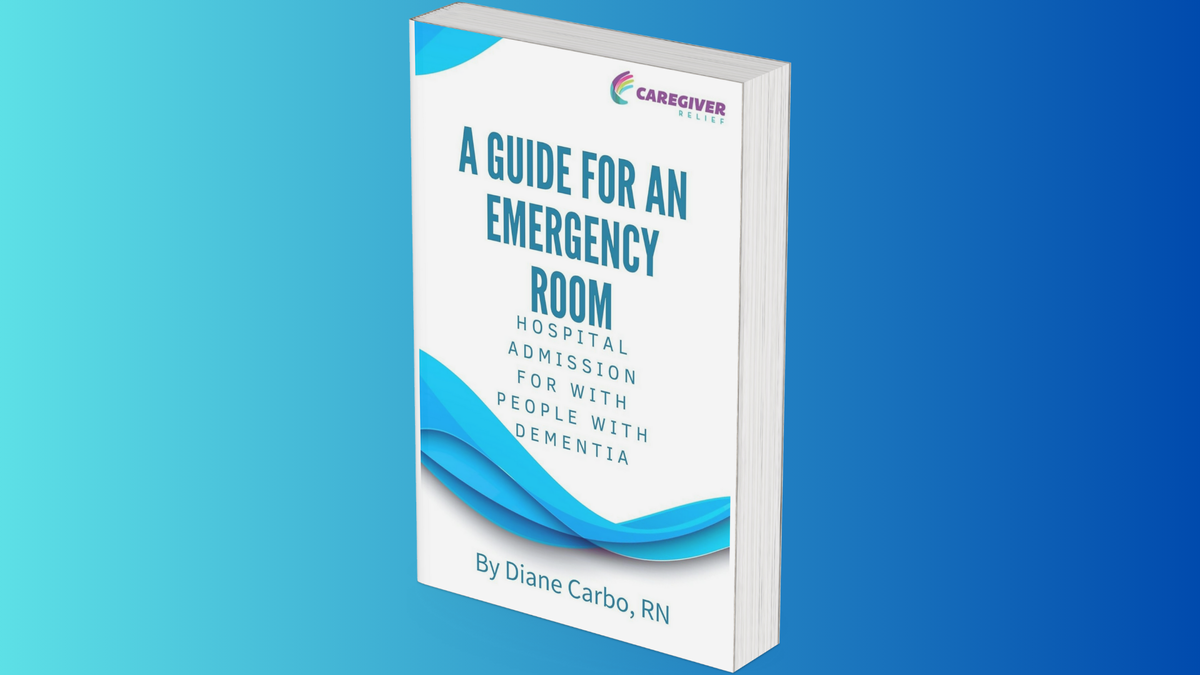A Guide for an Emergency Room: Hospital Admission for with People with Dementia


Accidents can happen, and when they do, seniors are vulnerable to losing their independence. If you find yourself rushing to the Emergency Room with a loved one suffering from dementia, your stress levels can skyrocket. This crucial guide, "A Guide for an Emergency Room - Hospital Admission for People with Dementia," is here to provide support during these challenging times.
Inside this book, you will discover invaluable insights to make ER and hospital visits less traumatic for both you and your loved one. From preparation steps to keeping your family member comfortable during their stay and collaborating with hospital staff, this guide covers it all.
It all starts with planning ahead. Conversations about hospitalization and exploring options like hospice care are vital as dementia progresses. The book even recommends the Caregiver Relief Eldercare Communication Course, a free resource filled with tips and strategies for tackling difficult topics with your loved one.
Safety is a top priority, and the book delves into Personal Emergency Response Systems, ensuring you have a plan in place early in the disease process to locate your loved one if they wander. Discover programs like the Safe Return program through the Alzheimer's Association, and learn when and how to involve local law enforcement for support without getting your family member in trouble.
When it comes to dialing 911 in an emergency, prior communication with local authorities can make a world of difference. Share your loved one's dementia diagnosis with the police and EMS, giving them the tools they need to handle situations appropriately.
Getting organized is key to a smoother hospital experience. The book recommends creating a binder with sections for medical bills, test results, medications, allergies, medical history, doctors' contact information, and important documents like Advanced Directives and wills. It even introduces Care tree, an online care management platform, offering a centralized location to store essential information and communicate with family members.
This guide recognizes the overwhelming nature of ER visits and offers advice on staying composed during a crisis. It suggests having a support person accompany you for decision-making and rapport-building with hospital staff. You'll also learn to navigate specialist recommendations and make your interaction with healthcare professionals more efficient.
Creating a Person-Centered Profile for your family member is another essential step, helping healthcare professionals see the person beyond the diagnosis. Templates are provided for your convenience.
To further bolster your caregiving journey, consider enrolling in the Caregiver Relief's courses, such as "New to Caregiving" and "How to Become a Patient Care Advocate." Identify a reliable support system, including family members, friends, or neighbors who can assist when needed.
With the Caregiver Relief online care management platform, you can streamline communication with your care team and stay well-coordinated. Say goodbye to phone tag and email chains as the platform automatically sends updates to your entire care team via text messages and emails.
Prepare yourself for unexpected emergencies and hospital visits by arming yourself with the knowledge and resources found in this comprehensive guide. Your proactive approach can save time, reduce stress, and ensure prompt treatment when it matters most. Get your copy today and be ready for whatever the future may hold.

You might also like this article:





